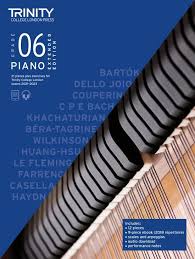Table of Contents
Come join us now, and enjoy playing your beloved music and browse through great scores of every level and styles!
Can’t find the songbook you’re looking for? Please, email us at: sheetmusiclibrarypdf@gmail.com We’d like to help you!
Sonatina in G (1st Mov.) Allegro (Trinity Piano) Thomas Attwood sheet music, Noten, partitura, spartiti, 楽譜

Best Sheet Music download from our Library.

Please, subscribe to our Library.
If you are already a subscriber, please, check our NEW SCORES’ page every month for new sheet music. THANK YOU!
Browse in the Library:
Or browse in the categories menus & download the Library Catalog PDF:
Trinity College London’s Piano exams are a globally recognized and respected pathway for pianists of all ages and abilities, offering a comprehensive and flexible assessment system focused on musicality, communication, and technical skill. Here’s a breakdown:

Key Features & Structure:
- Graded Exams (Initial – Grade 8):
- Levels: Start at Initial (foundational) and progress through Grades 1 to 8 (increasing complexity).
- Exam Components (Traditional Pathway):
- Performance (Repertoire): The core. Candidates prepare 3 pieces.
- Choice & Flexibility: A major strength. Pieces are chosen from Trinity’s extensive syllabus lists (covering Baroque to Contemporary, Jazz, Film, Musical Theatre) OR candidates can play own-choice pieces (any genre/style, including own compositions), provided they meet the technical and musical demands of the grade. This encourages personal musical interests.
- Technical Work:
- Scales & Arpeggios: Assesses finger technique, fluency, and knowledge of keys.
- Exercises/Studies: Specific technical challenges relevant to the grade.
- Supporting Tests (Candidates choose 2 from 3 options):
- Sight Reading: Tests the ability to play a short, unseen piece accurately.
- Aural: Tests listening skills (e.g., recognizing features, clapping rhythms, singing back phrases).
- Musical Knowledge: Oral questions about the pieces played, notation, or general musical understanding.
- Performance (Repertoire): The core. Candidates prepare 3 pieces.
- Alternative Assessment Pathways (Grades 1-8):
- Performance Certificate: Focuses only on repertoire. Candidates play 4 pieces (longer program). No technical work or supporting tests. Ideal for those prioritizing performance.
- Recital Certificate: Similar to Performance Certificate, but often requires a more substantial or demanding program.
- Diplomas (Post-Grade 8 – Professional Level):
- Levels:
- ATCL (Associate): Equivalent to the standard of a music student at the end of first year of undergraduate study.
- LTCL (Licentiate): Equivalent to the standard of a music graduate (end of undergraduate study).
- FTCL (Fellowship): Equivalent to the standard of a postgraduate (Master’s level).
- Focus: Advanced artistic performance, interpretation, program planning, and deeper musical understanding. Exams involve:
- A substantial recital program (30-50+ minutes depending on level).
- Programme Notes written by the candidate.
- Viva Voce (Oral Exam): Discussion of the repertoire, interpretation, and broader musical context (especially at LTCL/FTCL).
- Quick Study (Sight Reading/Preparation): At ATCL/LTCL.
- Options: Trinity offers performance-only diplomas (Recital/Concert) and diplomas combining performance with teaching (Instrumental/Vocal Teaching).
- Levels:
- Rock & Pop Piano (Graded Exams 1-8):
- A separate syllabus specifically designed for contemporary styles (Rock, Pop, Blues, Funk, Soul, Jazz, etc.).
- Focus: Stylistic authenticity, improvisation, groove, and playing from lead sheets/chord charts.
- Exam Components:
- 3 Pieces: Chosen from the Rock & Pop syllabus list.
- Session Skills (Choose 2 from 3):
- Technical Exercises: Often groove or pattern-based.
- Improvisation & Interpretation: Creating solos or fills over backing tracks.
- Playback/Sight Reading: Playing from notation or chord charts.
Benefits & Philosophy:
- Flexibility & Choice: The hallmark of Trinity. “Own-choice” pieces empower candidates to play music they love, fostering motivation. Multiple supporting test options allow candidates to play to their strengths.
- Focus on Musical Communication: Trinity emphasizes interpretation, expression, and engagement over mere note-perfect accuracy. The goal is to communicate the music effectively to the listener.
- Holistic Assessment: The combination of repertoire, technique, and musicianship skills (aural, sight-reading, knowledge) provides a well-rounded evaluation.
- Progressive Pathway: Clear structure from beginner to professional levels.
- Global Recognition: Qualifications are valued by schools, universities (UCAS points for Grades 6-8 and diplomas in the UK), and employers in the music sector.
- Innovative Syllabi: Regular syllabus updates and the dedicated Rock & Pop pathway keep offerings relevant.
- Accessibility: Exams are available at registered exam centres worldwide and increasingly via digital/recorded submission options.
Who are they for?
- Students: Of all ages, from young beginners to advanced players.
- Hobbyists: Seeking structured goals and recognition.
- Serious Musicians: Aiming for conservatoire entry or professional careers (via diplomas).
- Teachers: Providing a clear framework for lessons and external validation of progress.
- Contemporary Pianists: The Rock & Pop syllabus caters specifically to those not focused on classical repertoire.
Trinity Piano exams offer a flexible, musically engaging, and internationally respected system for assessing piano playing. Their emphasis on personal choice, communication, and a broad range of musical styles (including dedicated contemporary pathways) makes them an attractive option for a diverse range of pianists seeking to measure their progress and achievement. Whether pursuing classical excellence, rocking out, or aiming for a professional diploma, Trinity provides a structured and supportive pathway.
